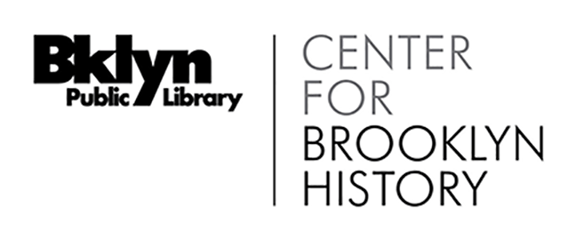American Sugar Refining Company records
Call Number
Dates
Creator
Extent
Language of Materials
Abstract
The American Sugar Refining Company operated a refinery in Williamsburg, Brooklyn, for nearly 150 years and employed, at its height, over 4,500 people at a time. Founded in 1807 as Wm. and F.C. Havemeyer, the company went through many name and ownership changes, eventually incorporating as American Sugar Refining Company in 1891, and is today known as Domino Foods, Inc. This collection includes annual reports describing the business operations of the firm (1907-1951), publications featuring photographs and stories about some of those workers (1876-circa 2000), and items relating to a Domino Sugar refinery labor dispute (1999-2001).
Historical note
The American Sugar Refining Company originated in the very early part of the nineteenth century. Within one hundred years, it was a major employer in Brooklyn, where it developed a number of innovations in sugar refining.
William Havemeyer, a German immigrant who arrived in the United States in 1799, founded the first incarnation of the company. He operated Mr. Seaman's refinery on Pine Street in Manhattan, where his brother Frederick joined him; together, they opened their own plant in 1807, Wm. and F.C. Havemeyer, on Vandam Street. By 1859, the firm was known as Havemeyer, Townsend and Co. Refinery, but it remained in the control of the Havemeyer family. They relocated to Kent Avenue in Williamsburg, Brooklyn that year in order to take advantage of available open space, a deep harbor, and an abundant labor pool. In 1861, the name of the firm changed again to Havemeyers and Elder. Other refineries joined them on the Brooklyn waterfront and, in 1887, Henry O. Havemeyer organized the Sugar Refineries Company, which successfully consolidated these nine local refineries as well as another eleven nationwide. The new company became known as the Sugar Trust and was responsible for refining 75 percent of the nation's sugar.
Because the Sugar Trust came under legal scrutiny, the Havemeyers dissolved the company and incorporated as the American Sugar Refining Company in 1891. The following year, that company purchased the E. C. Knight Company. As a result, by 1907 the American Sugar Refining Company controlled 98 percent of the national production of sugar. However, the company withstood challenge as a monopoly when the Supreme Court ruled that manufacturing -- in this case, refining -- was a local activity not subject to congressional regulation of interstate commerce.
Responding to popular and congressional pressure, the Company, which patented the name Domino Sugar in 1901, began to focus on the production of raw and cane sugar in Cuba. Consequently, its share of the refining business dropped steadily, to 72 percent in 1911 and to 24 percent in 1922. With the development of government controls to foster competition, its share of the refining market continued to shrink to 17 percent by the 1940s. The company remained a major employer along the Brooklyn waterfront throughout the 20th century.
In 1970, the company changed its name to Amstar Corporation, and it was purchased by the British concern Taft and Lyle in 1988. Following a lengthy strike, the company, now known as Domino Foods, Inc., shut down its Brooklyn operations by the end of 2004. In 2007, the New York City Landmarks Preservation Commission designated the 1884 refinery -- consisting of the filter house, the pan house and the finishing house -- a landmark.
Arrangement
The collection is organized into four series:
Series 1: Annual Reports and Stockholder Communications, 1907-1951
Series 2: The American Sugar Family (periodical), 1920-1921
Series 3: Publications, 1876-circa 2000
Series 4: Domino Sugar refinery labor dispute, 1999-2001
Scope and Contents
The bulk of the collection consists of The American Sugar Refining Company annual reports for 1907 through 1951, with some reports missing. The collection also includes many issues of a company periodical, The American Sugar Family, published in 1920 and 1921. It featured articles on sugar production and refining as well as photographs of and stories about company employees in each of its five plants, including the one on the Brooklyn waterfront. The collection also includes various other pamphlets, articles and images by and about The American Sugar Refining Company, dating from 1918 through circa 2000. Finally, the collection contains picket signs and flyers from the 1999-2001 Domino Sugar refinery labor dispute.
Subjects
Organizations
Topics
Conditions Governing Access
Open to researchers without restriction.
Conditions Governing Use
Most of the collection remains under copyright protection. Patron use of the materials must comply with those restrictions.
Preferred Citation
Identification of item, date (if known); The American Sugar Refining Company records, 2008.042; Box and Folder number; Brooklyn Historical Society.
Immediate Source of Acquisition
The collection has been assembled from various items held by the Brooklyn Historical Society. No donor information is known about the materials.
